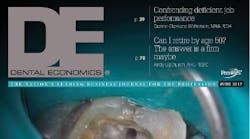Stop trying to time the stock market
Most doctors have been warned never to try market timing, yet many fall victim to the temptation time after time. It’s often unintentional—for instance, not writing a check to your retirement investment account because the stock market looks too volatile, or allowing cash to build up because you don’t have an automated electronic investment strategy in place.
Other times it’s clearly intentional, such as selling out because you believe the stock market is about to take a huge nosedive that you want to avoid. Given the recent election of Donald Trump, this likely crossed the minds of more than a few doctors due to the level of uncertainty following the election. Whatever the cause, these decisions to deviate from a well-planned, long-term investment strategy are costing doctors hundreds of thousands, if not millions, of dollars in lost retirement savings.
Data based on reviews of the finances of thousands of doctors over the last 15 years illustrates that trying to time the market adversely impacts retirement savings. To determine how detrimental it can be, we performed a market timing study using the S&P 500 index with fascinating results. Our study determined the outcome for three hypothetical investors who invested $60,000 in the S&P 500 ETF (SPY) every year from 1993 to 2015, with each investor using a different approach.
The first doctor timed the market perfectly, investing $60,000 at the lowest monthly close each year. The second invested $60,000 at the highest monthly close each year, while the third invested a steady monthly amount of $5,000. The results were as follows:
- Perfect timing: 8.9% ($4,098,798)
- Consistent investment: 8.2% ($3,738,019)
- Worst possible timing: 7.4% ($3,368,693)
What stands out is the relatively small difference in returns between the doctor who timed the market perfectly and the one who consistently invested the same amount each month (8.9% versus 8.2%). The study used 23 years of data, indicating a doctor would have to go 23 for 23 in order to make an extra 0.7% per year!
In reality, the odds of a doctor timing it perfectly are essentially zero. The more common scenario we see is doctors investing significantly less - or not at all - during periods when the stock market drops. Rarely do we find a doctor who openly embraces market volatility by investing the same or more when the market drops, but hopefully these results will persuade some to try.
Doctors should tune out the constant investment noise from the financial media, especially those who think they can correctly predict where the market is headed in the future. Instead, they should commit to being disciplined, long-term investors by investing a predetermined amount each month, and then leaving it alone! While this strategy alone will not guarantee that investors reach their financial goals over their time horizons, it will more than likely lead to better results than those doctors who think they can outsmart the stock market.
John K. McGill, JD, MBA, CPA, provides tax and business planning for the dental profession, and publishes the McGill Advisory newsletter through John K. McGill & Company Inc., a member of the McGill & Hill Group LLC. Jeff Harrell, CFA, provides investment advice through McGill Advisors Inc. (RIA). Both are members of the McGill & Hill Group LLC, your one-stop resource for tax and business planning, practice transition, legal, retirement plan administration, CPA, and investment advisory services. Visit mcgillhillgroup.com.
